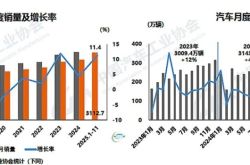Crucial Elements Overlooked: Insights on Apple's Latest Product Launch
![]() 09/10 2025
09/10 2025
![]() 620
620
Three hours prior, I prompted ChatGPT to encapsulate Apple's early morning product launch event. I had configured ChatGPT to operate in 'roast master' mode, imbuing it with attributes such as 'blunt' and 'Gen Z'. It candidly remarked, "This event was rather underwhelming. I'll begrudgingly highlight the so-called standout moments." This candor amused me, prompting me to revisit the official press release, only to find scant highlights. The sole allure for me lies in the potential purchase of AirPods Pro 3, enticed by their reduced price and the 'real-time translation' capability.
Key highlights from the event encompassed: the introduction of a slimmer iPhone 17 Air within the iPhone 17 lineup, marking another model update after years; pricing adjustments for entry-level iPhones; the unveiling of the A17 Pro chip, set for immediate deployment in new products; the launch of AirPods 3; the introduction of the Apple Watch Series 11 with enhanced health functionalities; the release of iOS 26, among others. Only two points directly pertained to AI: the A17 Pro (touted for superior on-device AI inference capabilities) and iOS 26 (rumored to incorporate additional AI features). If compelled to mention another, AirPods 3 would qualify, given that the real-time translation feature inherently relies on AI.
That's essentially it. During the event, Apple's stock price plummeted by 1.5%. If Wall Street is disenchanted with this event, I empathize; however, the broader user base, particularly those anticipating AI advancements, is likely to be even more disheartened. The long-awaited integration of AI features in Apple devices for the Chinese market remains a distant prospect, a fact already widely acknowledged by the market. But is Apple's AI truly that groundbreaking? American users who have already experienced it likely have much to say, as evidenced by the plethora of critiques on social media.
Since adopting an iPad in 2011 and transitioning to an iPhone in 2017, I've never contemplated abandoning the iOS ecosystem. It's a stellar ecosystem, respectful of users, feature-rich, and seamlessly integrated in terms of hardware and software, with the sole drawback being its premium pricing. However, at this juncture, I profoundly feel that if any factor could compel me to leave the iOS ecosystem, it would undoubtedly be AI. Although we're far from that point, if the current trajectory persists, one day, including myself, millions of users might make this unimaginable choice.
I'm an avid user of ChatGPT and a moderate user of DeepSeek. I've grown accustomed to consulting AI for all knowledge-based and creative inquiries. Thus far, my primary method of utilizing AI large models on the iPhone has been to open a browser or app interface, manually input text or images, and await the model's output. I acknowledge that this is far from the most efficient approach, but it's marginally acceptable. Through third-party apps, I certainly can't invoke other apps or internal iPhone functions, such as instructing AI to locate products and place orders. These are tasks that Apple, as the world's foremost smartphone manufacturer, should undertake.
It's imperative to stress that even in some developed countries where 'Apple AI' (Apple Intelligence) has been accessible for a while, the user experience isn't significantly enhanced. Apple AI is essentially a cumbersome amalgamation of an on-device model and a GPT large model. The intelligence level of the on-device model is mediocre, and its integration with Apple's native apps is subpar, let alone with third-party apps. AI was anticipated to swiftly become a core feature and growth driver of the iOS ecosystem, akin to the App Store's impact. However, nearly two years after the feature's proposal and nearly one year after its implementation, it remains dispensable. I believe that the vast majority of Apple users, like myself, still prefer to access more advanced and compliant large models through browsers or third-party apps.
Regarding the AI features introduced by Apple in office applications like Pages, Numbers, and Keynote, they appear somewhat useful but pale in comparison to Microsoft Office's formidable Copilot. Even Google's AI features in the Workspace office suite are more robust and abundant. If you never intended to use Apple devices as productivity tools before, you might be even less inclined to do so now.
Let's envision a scenario: a competitor unveils a smartphone natively equipped with one of the world's top three large models, deeply integrated with the operating system and seamlessly fused with native functions like search, mail, calendar, and office suites. Over time, this large model develops 'operating system-native agents' that enable you to use simple text or voice commands to instruct AI to invoke various apps and complete highly complex tasks. If such a smartphone is also more affordable than the iPhone (though its hardware specifications may not be superior), would you consider switching?
In reality, such smartphones already exist, and not just one—most smartphones running native Android systems will eventually incorporate these features. Google Gemini ranks among the top three or four large models globally and is continually improving, far from the underachiever it was two years ago. The Android system's underlying layer is gradually fusing with Gemini, offering more and more native AI capabilities, including integration with vital functions like Google Search and mail. Third-party app developers are also actively embracing the Android AI ecosystem based on Gemini. Within a few quarters, or perhaps even less time, the user experience of Android smartphones may significantly surpass that of the iPhone. Apple must exert every effort to prevent this from happening.
Regrettably, regardless of whether Apple has made sufficient efforts, we didn't witness many results of those efforts at today's early morning event. The potent A17 Pro (and even more powerful M-series) chips undoubtedly provide a solid hardware foundation; iOS 26 has made some modest application attempts; but these are far from adequate. The sluggish progress of Apple's self-developed large models, the poor design of Apple AI, and its underwhelming features have already raised concerns in the capital market over the past year. Perhaps Apple is reserving some significant moves, but given Tim Cook's consistent style, these moves are more likely to be incremental rather than disruptive. If Google or the Android system didn't exist, Apple's attitude might be justifiable. However, the reality is that its old rival is investing far more aggressively and possesses significantly stronger technical reserves.
Apple, with its massive user base and enormous financial resources, still has the capability to win the AI application battle. Even if it hasn't reserved any 'significant moves' before, starting now doesn't seem too late. But time is of the essence. The AI arms race has already progressed to its second or even third phase, transitioning from the hardware layer to the model layer and then to the application layer, while Apple remains entrenched in the first phase. Apple must undertake sufficiently radical and serious measures to truly catch up. The question is whether it recognizes the gravity of the situation. That's hard to say.
The vast majority of Apple users, including myself, won't consider switching to Android solely due to AI applications at present. We might even purchase more Apple devices this year. However, this isn't a reassuring signal, because by the time everyone truly decides to jump ship, it will be too late. The ideal scenario is to prevent anyone from even contemplating a switch—this has already been compromised, so it's perilous.





